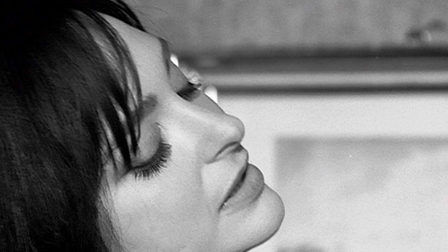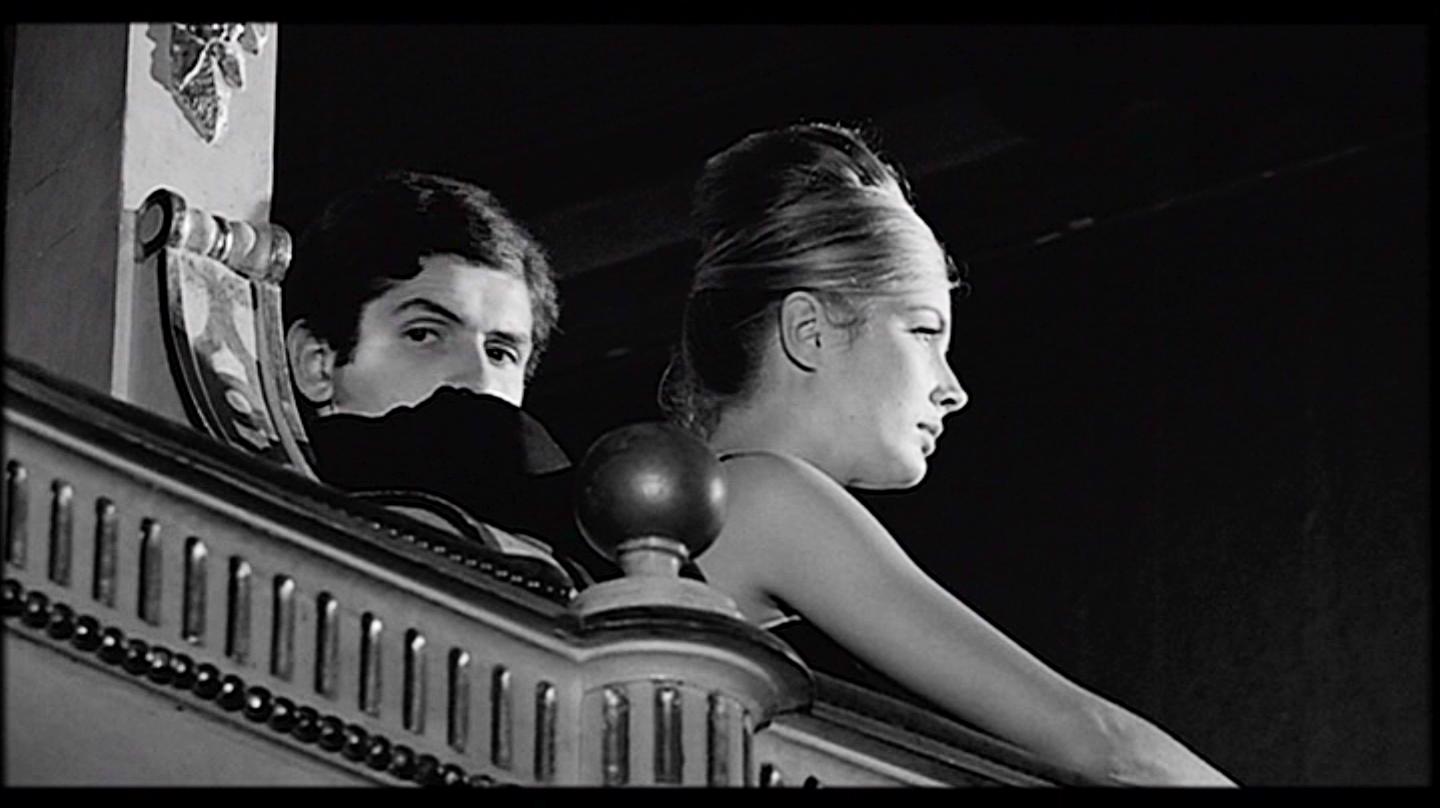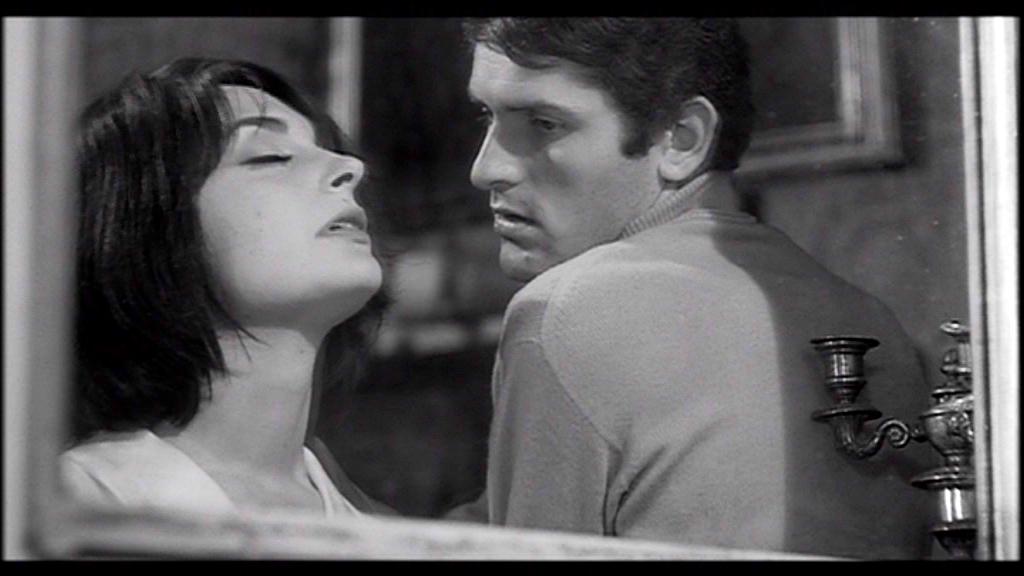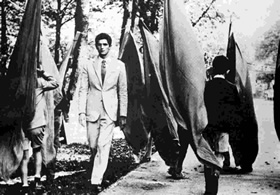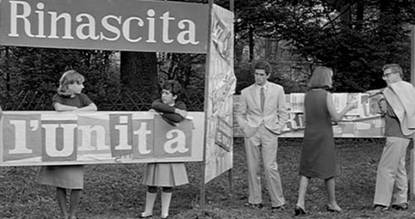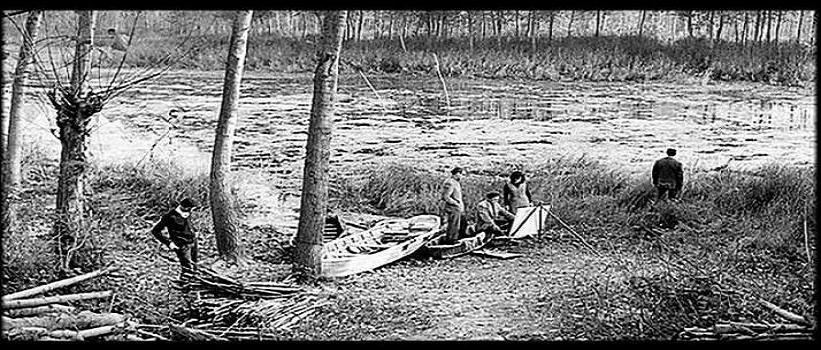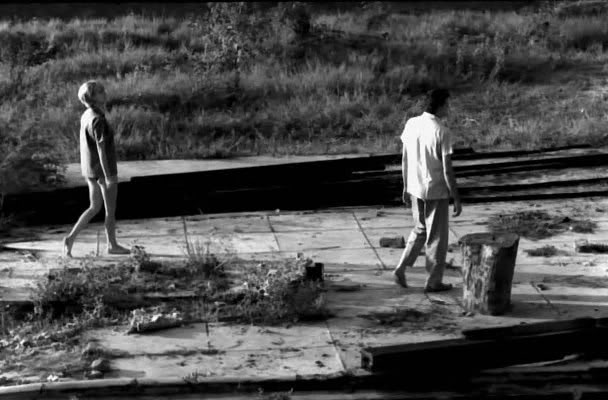This was written in the summer of 2000 for a coffee-table book edited by Geoff Andrew that was published the following year, Film: The Critics’ Choice (New York: Billboard Books), and tweaked in June 2010. — J.R.
It is not surprising that Bernardo Bertolucci’s second feature — made when he was only 22 and released a year later in 1964 — has never been as fashionable as The Conformist (1969) or as popular as Last Tango in Paris (1972). But even though it is sometimes raggy and choppy as storytelling, Before the Revolution is still possibly the most impressive thing he has done to date.
In 1962, when he was asked to adapt a story by Pier Paolo Pasolini into a screenplay and then to direct it (The Grim Reaper, or La commare secca), thereby paying tribute to his main Italian mentor, he also published his first volume of poetry, In Search of Mystery. And Before the Revolution, which pays homage to his primary French inspiration, Jean-Luc Godard, is in some ways closer to a poetry collection than it is to a novel — despite the fact that the characters are named after those in Stendhal’s The Charterhouse of Parma (1839), Bertolucci’s favorite novel at the time, and Parma is the central setting.
Indeed, the movie’s eclectic set-pieces are as flamboyant and almost as fleeting and disconnected (in their Godardian jump-cuts) as a set of precocious lyrical poems. There probably isn’t another Bertolucci film, at least until the recent Besieged (1998), that is constructed so closely around individual pieces of music, pop, jazz, and classical, culminating in a climactic premiere of a Verdi opera, Macbeth, heard off-camera but never seen. And like John Cassavetes’ Shadows (1960) — evoked directly in one love scene between the callow young hero Fabrizio (Francesco Barilli) and his slightly older and neurotic aunt Gina (Adriana Asti), played out to the accompaniment of a tenor saxophone solo — Before the Revolution has all the vibrant emotional intensity of youth giving its all. Moreover, the bisexuality featured more directly in many subsequent Bertolucci films is already present here in embryonic form, in Fabrizio’s attachment to his friend Agostino (played by Bertolucci regular Allen Midgette, an American actor) who commits suicide just before Fabrizio begins his affair with Gina.
Like many of Bertolucci’s films, this story struggles to reconcile Marx and Freud, played out in this case through Fabrizio’s battle to reconcile his “nostalgia for the present” with his Marxism, and his idealism with his class. (“My bourgeois future is in my bourgeois past,” he declares sorrowfully to a favorite teacher during a worker’s rally.) But this time the essential matter is triumphantly and movingly the stuff of everyday life: Gina and Fabrizio shopping one afternoon to the strains of a heartbreaking Italian pop tune, or visiting a member of the landed gentry about to lose his property (whose lament becomes an offscreen oratorio). It is even seen in such ephemera as Agostino repeatedly crashing his bike while clowing for Fabrizio, performed to the contrating lilt of a sad circus tune, or an altar boy trying to hold back an unwanted giggle during Fabrizio’s eventual marriage to a conventional bourgeois debutante.

